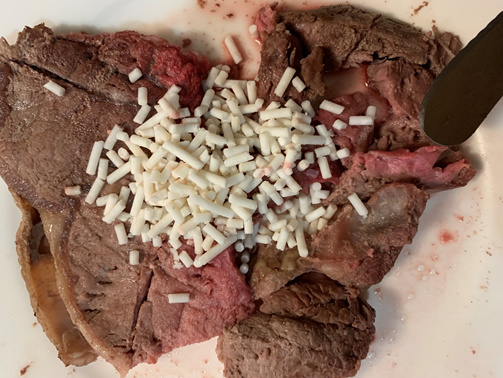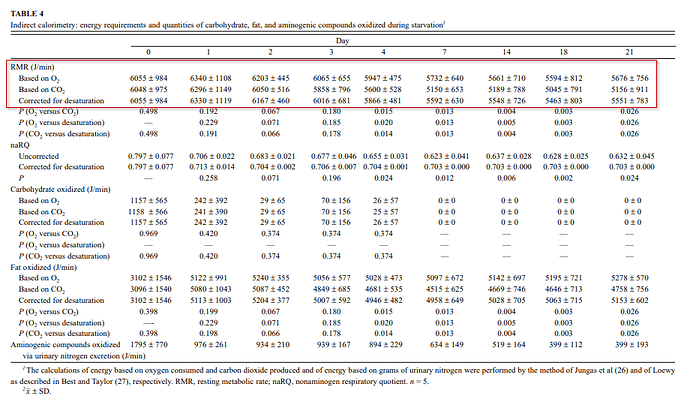Hello Carnivores!
I am trying to resolve my IBS issues by an elimination diet. I just did a 247 hour fast without any food at all, and I am now going to start eating the Lion’s diet (nothing but meat/organs and salt) for a few more weeks and then if things go well, start introducing butter, eggs, cheese or whatever at 2 week intervals until I have a solid list of safe foods.
Due to just fasting for 10 days, I also want to ramp up my RMR by eating 3000 calories/day. If I eat the fattiest meats, I still could at BEST high 50% fat/protein, which would put my grams of fat and protein at about 3000/13=230 grams of each (and this is probably wishful thinking at every meat containing 50% fat - most are much less, especially since I am eating grass fed beef which is leaner). OK, I can eat that much volume easily enough — BUT, that is too much protein for me, a type 2 diabetic. I do not think I should eat more than at most 150g of protein a day (I now weigh 66 kg, so 150 would be quite a large amount at 2.27 g/kg body weight).
So, looking for ways to greatly increase my pure animal fat intake in a way that isn’t just drinking warm bacon fat. My best thought is to get beef suet, and melt it, and dip my meat into it (have never tried this). Anyone have any other good ideas outside of using fat drippings in existing cooked meats?


